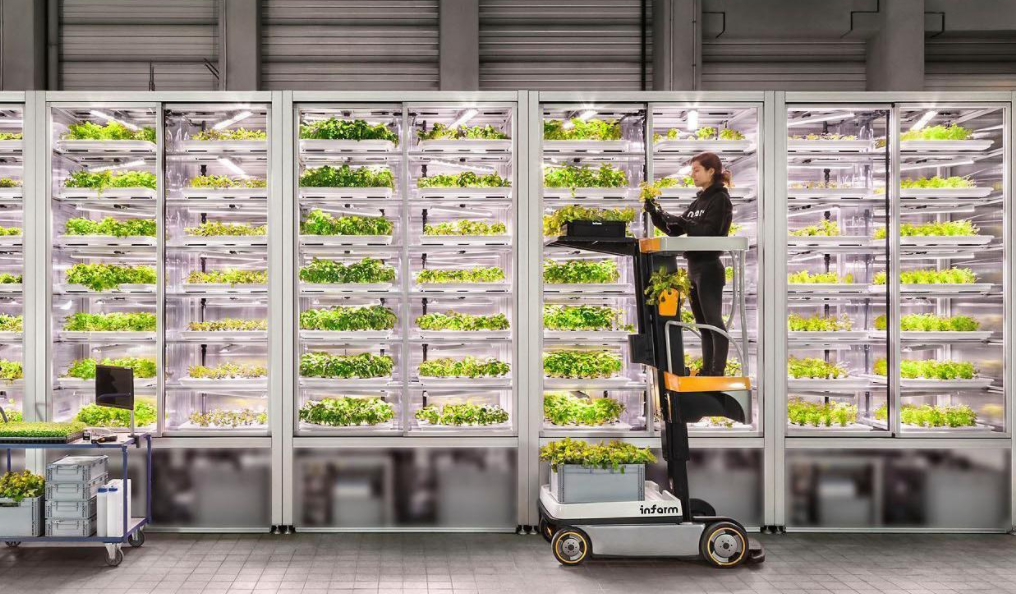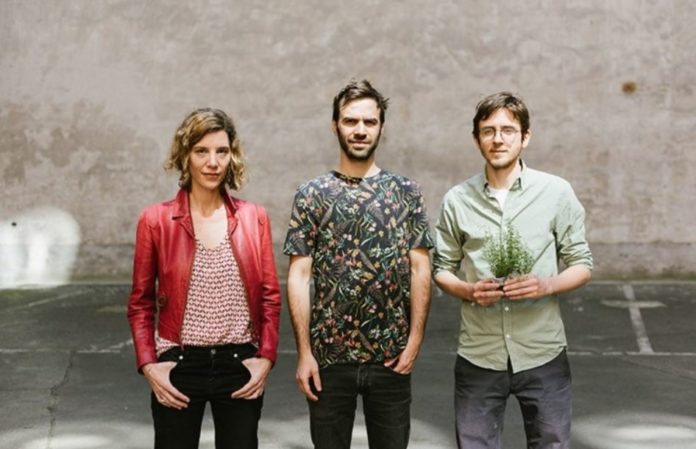Editor’s note: This is the second installment of a series focusing on social impact startups. Stay tuned for more.
It is projected that by 2050 two-thirds of humanity – or 6.5 billion people – will be living in urban spaces. The challenge will be building and managing urban spaces to sustain such a massive population. In theory, industrial agricultural produces enough food to feed the world as a whole, but the current model is unsustainable.
Large-scale agriculture has led to deforestation on a mass scale – as we are currently seeing in the Amazon – along with soil degradation, water waste, and plant diseases that require the use of pesticides (and are constantly mutating). Moreover, due to energy use and lengthy transportation routes, the CO2 footprint of food currently represents 17% of total global emissions. Climate change will, in turn, have an increasing impact on agriculture – with changes in rainfall, rising temperatures, an increase in pests, and extreme events such as heatwaves, droughts, storms, and floods affecting our ability to provide food for a growing global population.
These challenges have been the driving force behind the global agtech movement. For two straight years, agtech startups have received $2 billion in funding and 2019 is set to be another banner year for agtech.
Leading the pack in Europe is Berlin-based agtech startup Infarm, which recently closed an €88 million Series B investment led by Atomico.
From concept to reality
Founded in 2013 by Osnat Michaelli and brothers Erez and Guy Galonska, Infarm pioneered putting ‘indoor vertical farms’ in city locations such as supermarkets, shopping malls, restaurants, schools, hospitals and similar spaces where the produce can directly reach the end customer.
“My two co-founders and I came together around the idea that being close to the land and particularly its produce is vital to our health and creativity as a society. And from the beginning we began to explore – through travel, growing and experimentation – ways to bring natural vitality of the local farm into the city and the freshness and flavour back into our lives,” explained Infarm CEO and co-founder Erez Galonska.
“We also realised that our current food system’s biggest deficiency is that it is too far removed from the people it is trying to feed. At infarm, rather than asking ourselves how to fix these deficiencies in the current supply chain, we looked to redefining the entire chain from start to finish; Instead of building large-scale farms outside of the city, optimising on a specific yield, and then distributing the produce, we decided it would be more effective to distribute the farms themselves throughout the city.
“In 2013 we converted a 1955 Airstream trailer into our first vertical farm in one of Berlin’s most well-known urban farm spaces, ‘Prinzessinengarten’. This trailer became a hub for our early experimentation, where visitors could harvest herbs and microgreens and we could welcome a vibrant community of urban planners, designers, food activists, bio-dynamic farmers, architects, chefs, biologists, and hackers to explore the diverse challenges behind making urban farming a reality. This research station and lab would form the beginnings of what we today call Infarm.”
Today, ‘infarms’ can be stacked to fit any space and size, and are designed to easily plug into the city’s existing infrastructure. Infarm controls the farms remotely using sensors and a centralised, cloud-based platform that adjusts and improves itself continuously, so each plant grows better than the one before – providing plant seedlings with an ideal combination of light spectrums, temperature, pH, and nutrients for optimal growth.
The concept was further refined with inputs from biologists and cooks. The startup’s farms use no pesticides, 95% less water than traditional farms, and reduce transportation by 90%. Infarm’s largest module can grow up to 680,000 plants each year on only 25 square metres, making it 420x more efficient than soil-based agriculture.
In 2016, Infarm received a grant of €2 million from Horizon 2020, Europe’s biggest research and innovation programme. The grant was awarded on the basis of Infarm providing sustainable agriculture using hydroponics, proprietary lighting algorithms combined with indoor vertical farming, along with its patented modular ‘growth trays’ to create an incredibly efficient growing environment. The same year Infarm partnered with Metro Group, one of Europe’s biggest wholesalers, and in 2017, the startup received an early VC investment of €4 million.
2018 was a banner year for Infarm – both in terms of increased presence and funding. It secured a partnership with supermarket chains EDEKA and REWE in addition to partnering with several restaurants including Tim Raue and Good Bank. It also raised a Series A funding round of €20 million led by Balderton Capital. By mid-2018, Infarm was present in more than 50 customer-facing locations and launched its first Infarm in France via Metro Nanterre in November 2018.
Infarm has been rapidly growing and scaling since, and with its impressive €88 million round. Today, Infarm has over 200 in-store farms, over 150 farms in distribution centres and harvests more than 150,000 plants every month. In addition to its early partners Metro and Edeka, Infarm has partnered with major food retailers including Migros, Casino, Intermarche, Auchan, Selgros, and Amazon Fresh in Germany, Switzerland, and France.
Infarm’s team has grown from 40 people in 2016, to 150 in 2018, and the startup now employs over 250 people in several locations across Germany, as well as in Denmark, France, Switzerland, UK, and the US.
Today the total market for fruit and vegetables is €2.2 trillion worldwide, with an average of 10 kilos of salad per year, per person. This market is expected to grow to €5 trillion by 2030 as people’s diets are shifting to healthier and fresher food.
With this growing market size, Infarm sees a great opportunity for expansion while filling a societal need. The startup is planning to land in the UK this month, and is setting its sights on foreign markets; the startup is already in advanced discussions with retailers in the US and Japan. Its ultimate vision is to feed the 10 billion people living in urban centers by 2050.
Agriculture-as-a-Service
What makes Infarm attractive to supermarkets and other similar establishments is its ‘Agriculture-as-a-Service’ business model. The modular ‘farms’ themselves remain the property of Infarm, which receives income per harvested plant. Infarm coordinates with retailers and takes care of the farm including installation, cultivation, harvesting, and maintenance. Its farm unit becomes part of the retailer’s vegetable department. Aside from the regular visits by a service personnel to plant new plants, the farms are controlled remotely. This modular, data-driven and distributed approach — a combination of big data, IoT, and cloud analytics — sets Infarm apart from competitors.

From a price point, Infarm is attractive for supermarkets, which get a better product at the same price. In addition, the plants, especially herbs, are harvested fresh; preserving color, smell, flavour, and nutrients.
Sustainable cities with responsible production
Before there was agtech and its cousin foodtech, it was all under one banner: agrifood tech. This vertical is now split in two: upstream or agtech is closer to the farmer, while downstream is foodtech, closer to the consumer. Infarm sits perfectly at the intersection, innovating in farming while at the same time drastically reducing or even eliminating the farm to market supply chain and bringing its produce directly to consumers. In effect, Infarm addresses two United Nations sustainable development goals: impacting both building sustainable cities (SDG #11) and communities and responsible production (SDG #12).
Infarm is redesigning the entire food supply chain from start to finish by distributing the ‘farms’; farming directly where people live and eat. It claims to be 400x more efficient than traditional agriculture.
The impact of its instore farms is best illustrated by the following numbers:
- 2 square metres of instore farms is equivalent to 400 square metres of traditional farmland
- Only 0.5% space usage for each instore farm
- 95% less water than traditional agriculture
- 90% less transportation
- 75% less fertilizers, 0 pesticides
- 150,000+ plants per month harvested
The future of farming
Infarm’s goal for the future is to gain an even deeper understanding of the optimal conditions for plants, and for supermarkets to source all their needs for herbs from Infarm alone. With its data collected from sensors that measure and control plant growth, Infarm possess a unique plant database and may well be on track to achieving this goal.
Although experts agree that feeding a rapidly burgeoning urban population cannot be solved by vertical urban farming alone, Infarm and similar agtech startups are hailed as trailblazers. They form part of the solution, while appealing to people who care about what they eat and where it comes from.
The signs are clear that in the near future, Infarm and similar companies will become the norm and not a novelty.




